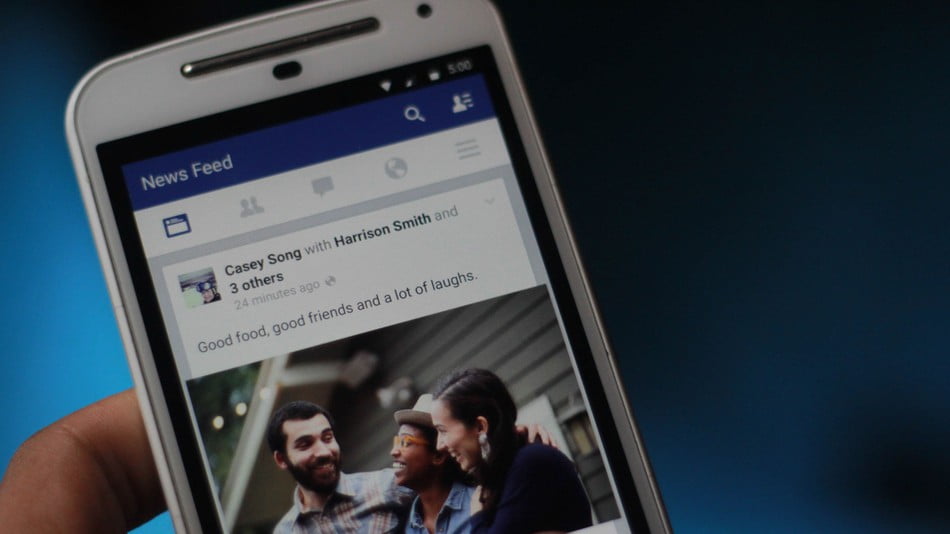/https%3A%2F%2Fblueprint-api-production.s3.amazonaws.com%2Fuploads%2Fcard%2Fimage%2F367295%2Fc007b00d-08a6-4bea-902d-d66210bc0478.jpg)
If you’re not from the United States, U.S. government officials may request your phone at the border. They may scroll through your Facebook feed. They may search your phone contacts. But according to lawyers, whether or not this is actually legal is a confusing mess.
According to immigration lawyers Mashable spoke with on Monday, the law is, at best, unclear on whether government officials can comb through pieces of your digital life to determine whether you are allowed to set foot in the country.
SEE ALSO: Trump’s political appointees will vet EPA’s scientific work before release
Right now, immigration lawyers told Mashable that government officials often ask for immigrants and foreign travelers to hand over their phone so the official can scroll through social media information and more. But if that practice were to come up against a serious legal test — or if the practice became more widespread — lawyers say it would likely run into huge legal hurdles.
Following an executive order by President Donald Trump that threw the legal status of immigrants and travelers from seven Muslim-majority nations into chaos, CNN reported that White House officials are discussing “the possibility of asking foreign visitors to disclose all websites and social media sites they visit.”
When we requested information from the Department of Homeland Security as well as Customs and Border Protection about whether officials had begun to request social media information from travelers on a broader basis this weekend, officials did not respond to emails and phone calls.
If the border policy continues to get tougher and searching through traveler social media information turns into a broader policy, lawyers said one of the most obvious legal hurdles in the U.S. would be the fourth amendment, which prevents unreasonable searches and seizures.
“Really what you’re getting into is whether or not this is a warrantless search,” Leslie Holman, a recent president of the American Immigration Lawyers Association, told Mashable. “It violates an expectation of privacy.”
That it may, but Holman and other immigration lawyers said this expectation of privacy doesn’t always translate into actual privacy when immigrants and travelers are trying to get through airport security.
For one, officials may be allowed to search through social information on a phone if they claim to have “reasonable suspicion” that a search of this information is warranted. “Reasonable suspicion,” is, of course, a pliable term that can be molded to fit an argument.
“They just have so much discretion and power because there’s not a lot of clear regulations,” Licelle Cobrador, an immigration lawyer in New York City, told Mashable.
Often, Cobrador said, people traveling to the U.S. will also hand over their phones if asked, without realizing that this might be implied as consenting to a search. Once a customs official has a phone in hand and the password to that phone, they can search whatever they like — including emails, Facebook posts, and tweets. An Iranian journalist who works for the BBC had his tweets searched for political opinions just this past weekend.
Given that requests for any information that might be found on a phone do not legally have to be followed, travelers can, of course, refuse to hand over their phone. But there is the very real chance that refusing could put their entry to the country in jeopardy and officials might force the person to turn around. The reason for that denial wouldn’t necessarily be stated, but it would be implied, Holman explained.
This push into extra surveillance of foreigners entering the U.S. actually kicked off late last year when U.S. officials started asking for social media information from those traveling to the country on a visa waiver. In good news, fulfilling that request for your Twitter and Instagram handle is currently still optional.
Of course, this type of vetting, if applied to a broad swath of immigrants and travelers, may simply prove untenable due to the sheer volume of people. Department of Commerce statistics show that roughly 7.6 million travelers from foreign countries came to the U.S. in July of 2016, the latest month for which the department has released data to the public. At around 245,000 travelers per day, not including legal residents, that’s a lot of social media feeds.
April Doss, a lawyer and data privacy expert who is the former associate general counsel for intelligence law at the NSA, told Mashable the only way to make sense of the bulk collection of social media information from that many people would be to store it and comb through it later.
That — perhaps obviously — gets into other potential legal issues, which brings us back to the genesis of the problem: Extracting social media information is a legal gray area so murky it’s near impossible to navigate.
[Source:-Mashable]







